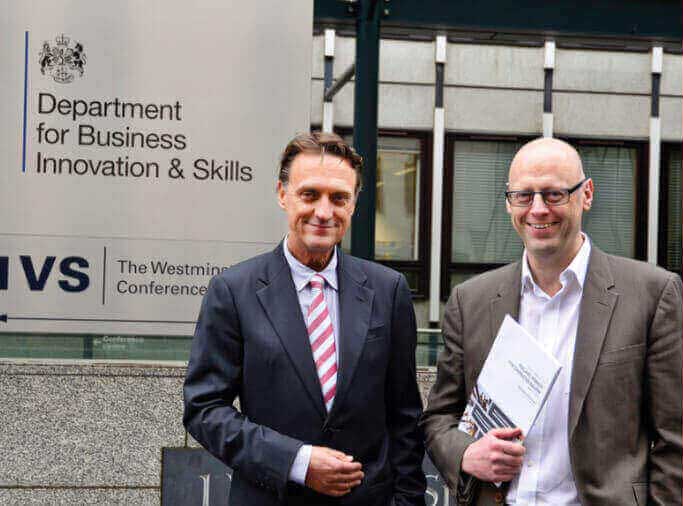13th November 2017 | David Jackson
I’ve just finished reading a report about ‘Self-Employment and the Gig Economy’ produced by a group of MPs who serve on the Work and Pensions Committee and published earlier this year.
It confirms the self-employed are now a large and growing part of the workforce, with over five million people – 15% of workers – earning their living as freelancers.
At the core of this report, there is a very realistic concern about the future of our welfare state:
- Those who are self-employed are now entitled to a full state pension, along with Universal Credit as and when needed
- National Insurance contributions for the self-employed have remained static
- Even though the self-employed continue to have fewer rights and entitlements than employees, there is a fiscal imbalance, with a cost to the Treasury of £5.1 billion p.a.
Beyond this economic unease, the Committee has examined what it terms as exploitative employers denying their workers due rights, poor working conditions, low pay and a rise in bogus self-employment.
I must say, I agreed with almost every line written in the broad spectrum of reported cases involving taxi drivers, food delivery cyclists and van drivers hired to cope with the boom in online shopping.
But thankfully, I didn’t find a single reference to the construction industry.
Hudson Contract’s experience and evidence demonstrates most of the Committee’s concerns simply do not apply to legitimate freelance builders.
Here’s what I mean (extracts from the report are in italics):
“Self-employment is genuinely flexible and rewarding for many, but people on employment contracts can and do work flexibly; flexibility is not the preserve of poorly paid, unstable contractors. Profit, not flexibility, is the motive for using self-employed labour in these cases.”
This isn’t the case in construction. Flexibility is essential in meeting programme demands. You don’t need one hundred bricklayers at the beginning of a project when demolition or excavation is under way. But of course you do need them part-way into the programme and you’ll have finished with them long before you hand over the building or project to the client. And if you’re a specialist brickwork contractor, the next hundred brickies you need could be three hundred miles away from the site where you have the current number. A flexible workforce is therefore essential.
“Designating workers as self-employed because their contract offers none of the benefits of employment puts cart before horse. It is clear, though, that this logic has taken hold, enabling companies to propagate a myth of self-employment. This myth frequently fails to stand up in court, but individuals face huge risks in challenging their employment status in that way.”
This is true of many providers of self-employment contracts, including plenty that we have seen used directly by construction companies. That’s fine until the contract is put to the test, and the do-it-yourself approach turns out to be penny-wise-pound-foolish. By contrast, Hudson contracts are used lawfully, properly and ethically . . . and that’s not just me talking, as these are the exact words of a High Court judge sitting on one of our cases heard before the judiciary.
Financial exploitation and tax losses? I don’t think so . . .
“The apparent freedom companies enjoy to deny workers the rights that come with employee or worker status fails to protect workers from exploitation and poor working conditions. It also leads to substantial tax losses to the public purse, and potentially increases the strain on the welfare state.”
At current levels of demand for construction tradespeople, I sincerely doubt whether there is more than one in a hundred self-employed operatives who could be proved to be financially exploited – if that. The monthly Hudson Contract Pay Stats clearly demonstrate the overall trend of increased earnings across the whole spectrum of trades in all parts of the country. What’s more, working conditions on building sites are driven by strict Health and Safety regulations, and beyond the statutory provisions, it’s in every contractor’s interest to provide better-than-average welfare facilities in order to attract and keep operatives. Poor working conditions are few and far between and not usually tolerated by operatives who have many opportunities for work.
Finally, in an eNews story previously published, we established that the tax take from the self-employed in construction is higher than it would have been if all were employed on union-established rates of pay. Whilst its accurate to say the quantum of NICs is less with self-employment, the overall value of tax aid to HMRC is significantly higher.
To summarise, the construction industry continues to need self-employed, flexible, skilled operatives and both the industry itself and the UK economy in general benefit from those who work on a ‘pay-per-output’ basis.
That is productivity at its highest.
At the next Committee looking at self-employment, the new Housing Minister and the new Minister for Construction all need to be mindful that self-employment in construction is not part of the ‘gig economy’ and definitely not on a par with Uber and Deliveroo drivers.
I look forward to sending them Professor Andrew Burke’s updated paper on freelancers in the construction sector when it is published in the New Year – and to sharing his valuable insights on the Hudson Contract website
The report on Self-Employment and the Gig Economy is here
Want to talk to us?
If you would like to get in touch, call us or fill in your details and we will call you back.
Call 01262 401040
Request a callback
Value freelance builders!
Construction couldn’t function without the individual contributions freelance builders make. If it weren’t for them the industry would be smaller, less efficient and inflexible

To speak to one of our team, call us on 01262 401040
Or request a callback and one of our team will be in touch at a time that suits you.
Request a callback
Please select your role and fill in your details and we'll get you the right person to call you:




